
Your support helps us to tell the story
In my reporting on women's reproductive rights, I've witnessed the critical role that independent journalism plays in protecting freedoms and informing the public.
Your support allows us to keep these vital issues in the spotlight. Without your help, we wouldn't be able to fight for truth and justice.
Every contribution ensures that we can continue to report on the stories that impact lives

Kelly Rissman
US News Reporter
A mother-of-two who moved out of her family home to embrace a nomadic lifestyle now lives in a handmade tent in the British countryside with solar power, homegrown food and expenses of just £300 per month.
Jessica Rost, a 55-year-old artist, first transitioned to full-time nomadic living in 2019 when she moved into a converted Ford Transit van.
Jessica initially kept her two-bed family home in Milton Keynes as her two children, now aged 25 and 27, who she does not wish to name, lived there “on and off” between going to university and starting work.
In 2021 she then started making bender tents – shelters made from woven branches or metal that are bent in a dome shape – as part of her work as an artist, but then decided to make one for herself to live in.
She moved into her first bender tent in Blackburn in 2021 and since 2022 has resided in a seven-metre by five-metre tent in the Cheshire countryside featuring five windows, a gas cooker, carpeted floors, a flower pot fridge, wireless internet access and even a bath on wheels.
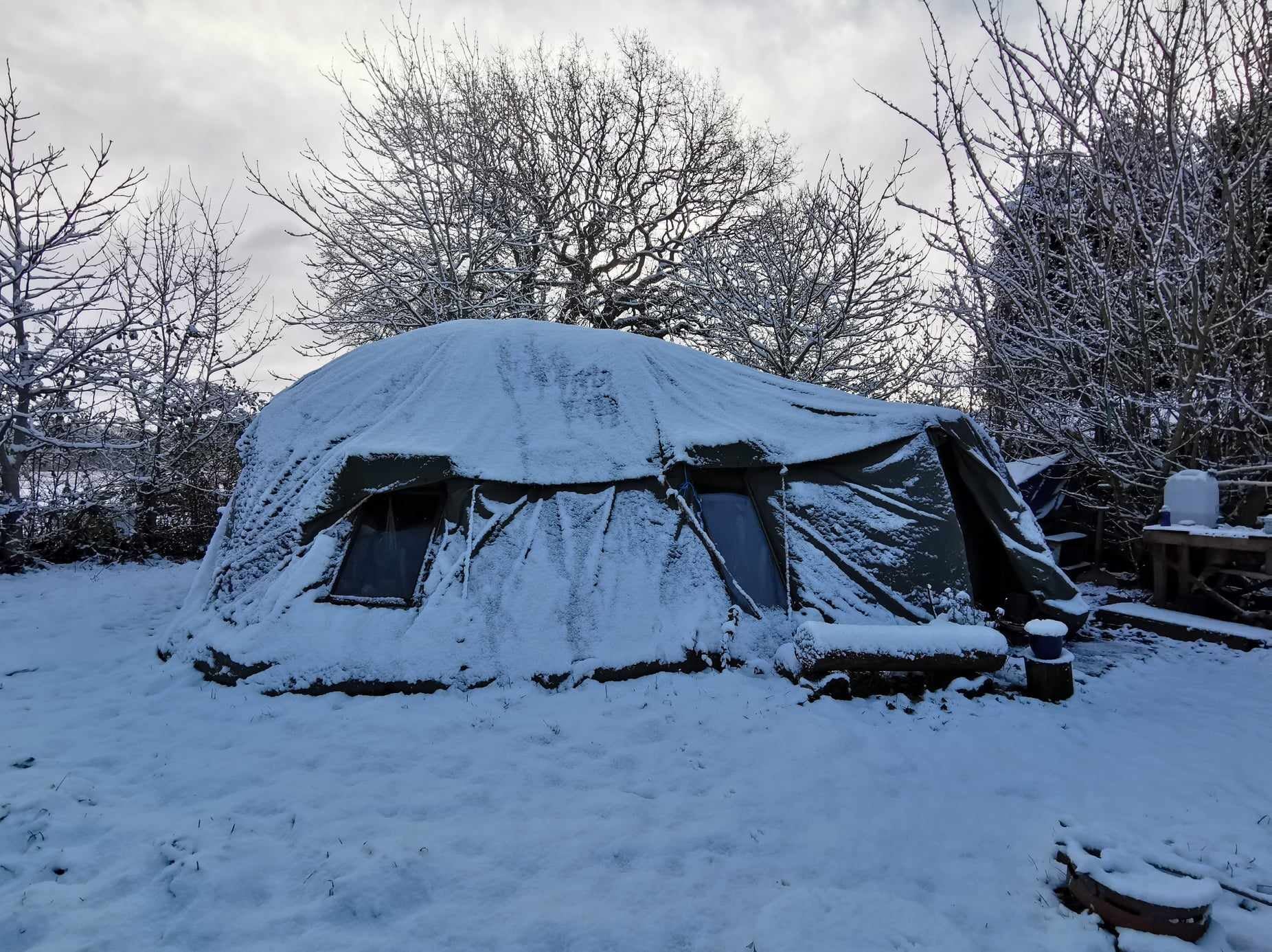
Jessica keeps her monthly expenses to around £300 by growing her own food all while sharing her home with the occasional spider, shrew, slug and toad, which she sees as “just part of it”.
Later this year she will temporarily move into a two-bedroom terraced house she purchased in Lancaster to live with her partner, an environmental activist, and his son, who she does not wish to name – but she hopes to then one day move them all into a treehouse or van and doubts she will ever fully return to a conventional lifestyle.
Jessica told PA Real Life: “Everyone loves it, seeing my really crazy little hobbit house – it’s got everything you need – it’s like a mini house.
“One year, I had about eight people in here on Christmas Day.”
In 2019, Jessica put traditional house living to one side and first started living nomadically full-time in her van.
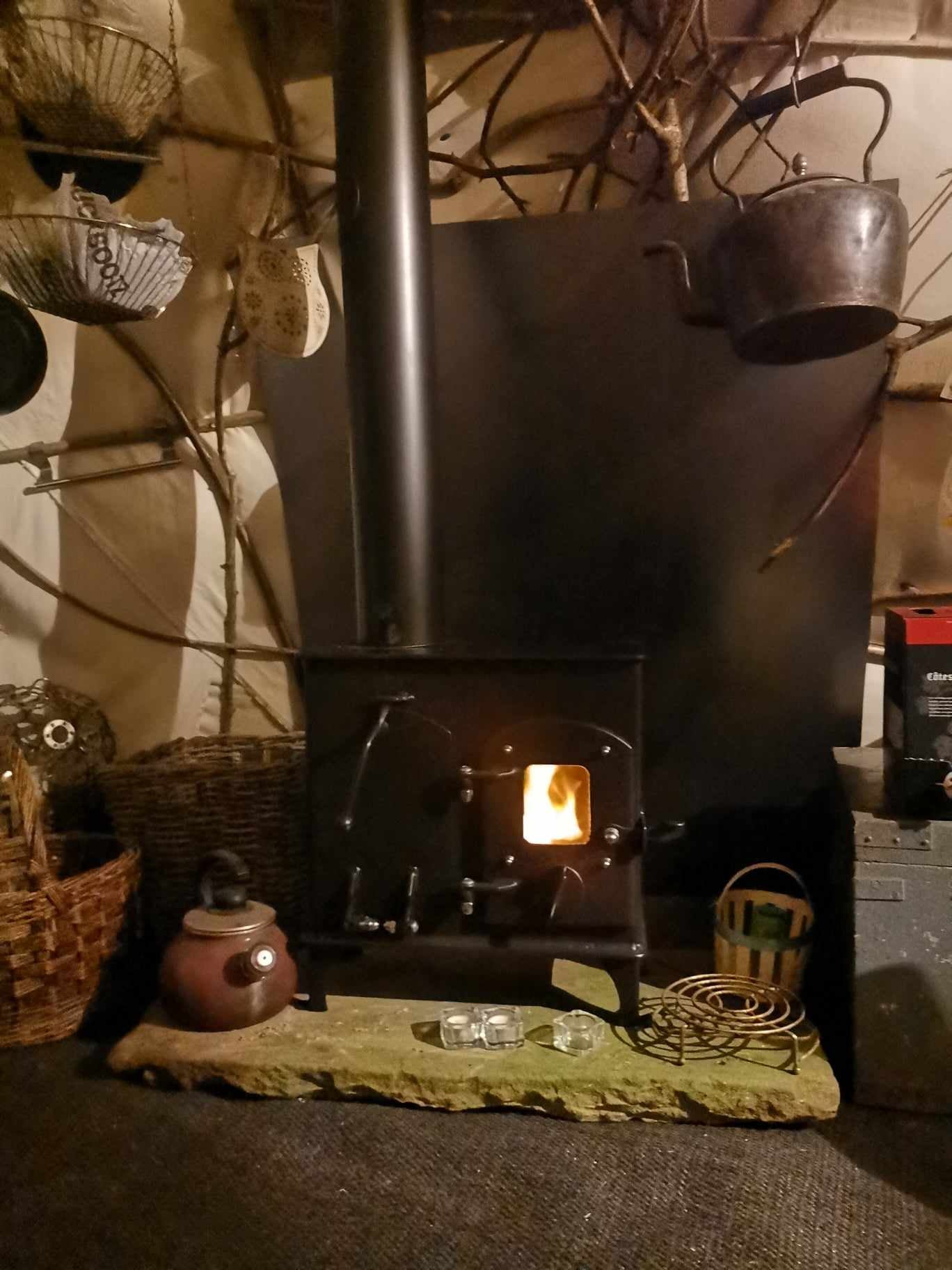
“I took to it (living off grid) very easily, because I’ve always lived an outdoor life,” she said.
“It’s very close to living outside, but not outside – you hear the owls and you hear the rain, and you hear everything, and you see all the seasons.
“Even if I’m in a house with a garden… after a couple of days, I start to feel very claustrophobic.”
During this time, Jessica’s artwork involved creating bender tents and labyrinth spaces for people to walk through and contemplate life, but in 2021 she decided to build one for herself to live in in Blackburn.
As of 2022, she lives in a bender tent in a field in Cheshire.
Constructing the seven-metre by five-metre tent cost Jessica around £1,500, and she completed it in just a few days.
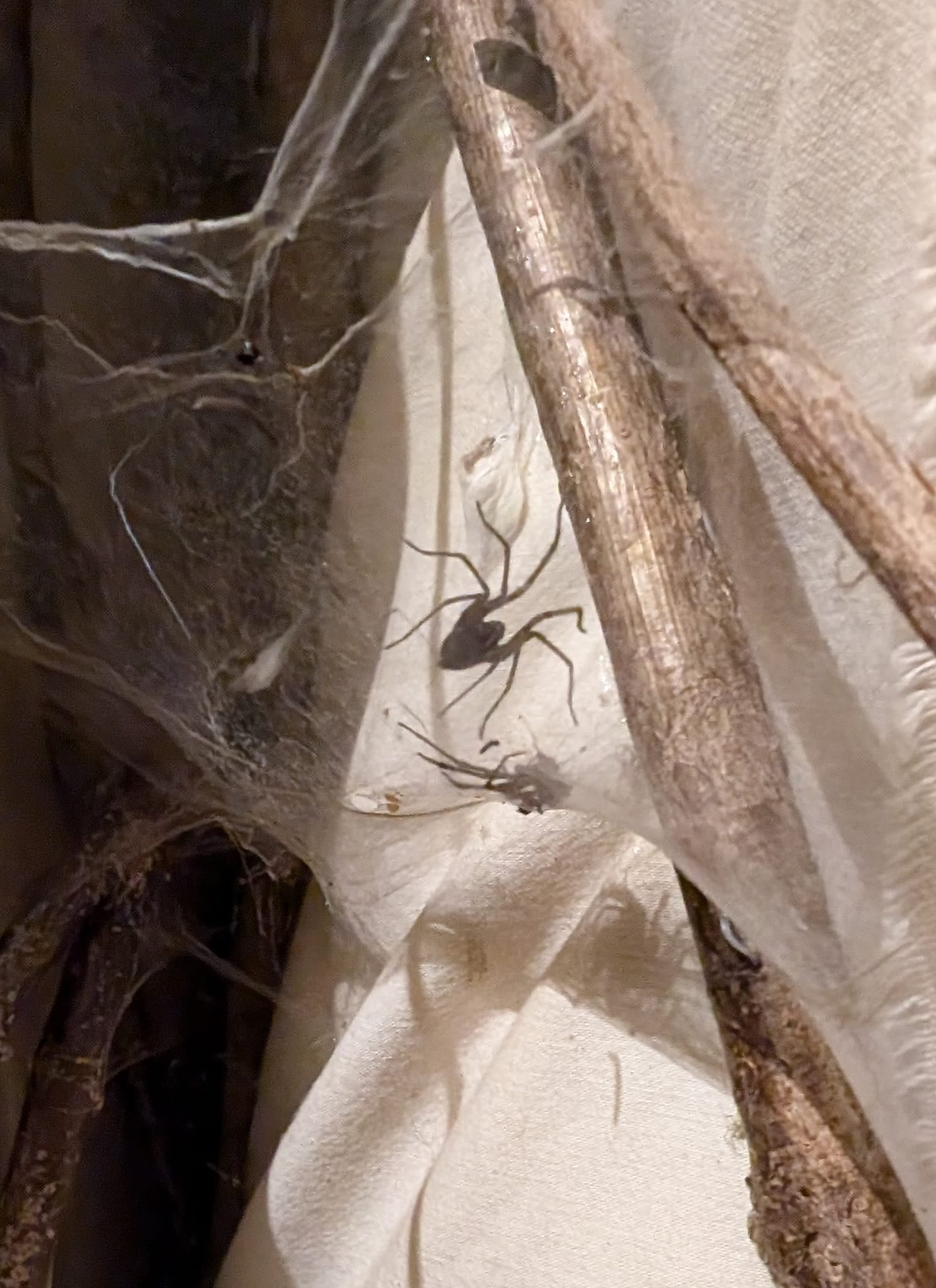
“It’s made of hazel poles bent into a dome shape, it’s got five windows, a door, a small boot room, a gas cooker, a good, strong ground sheet, a couple of layers of carpet, lots of insulation, and some tarpaulin over the top,” Jessica explained.
“Outside, I can see lots of hedgerows, a walnut tree, and a little fire pit.”
Her loved ones, including her two children “love coming to visit”, and when she decided to live off-grid Jessica believes they were “not really surprised”.
Jessica uses a solar panel to charge her phone and access the internet, primarily for selling her artwork and sculptures.
She has also constructed a bath on wheels, which runs off a battery and gas bottle, heating up in just 15 minutes, so she can “have a bath whether (she’s) up a mountain or in a field”.
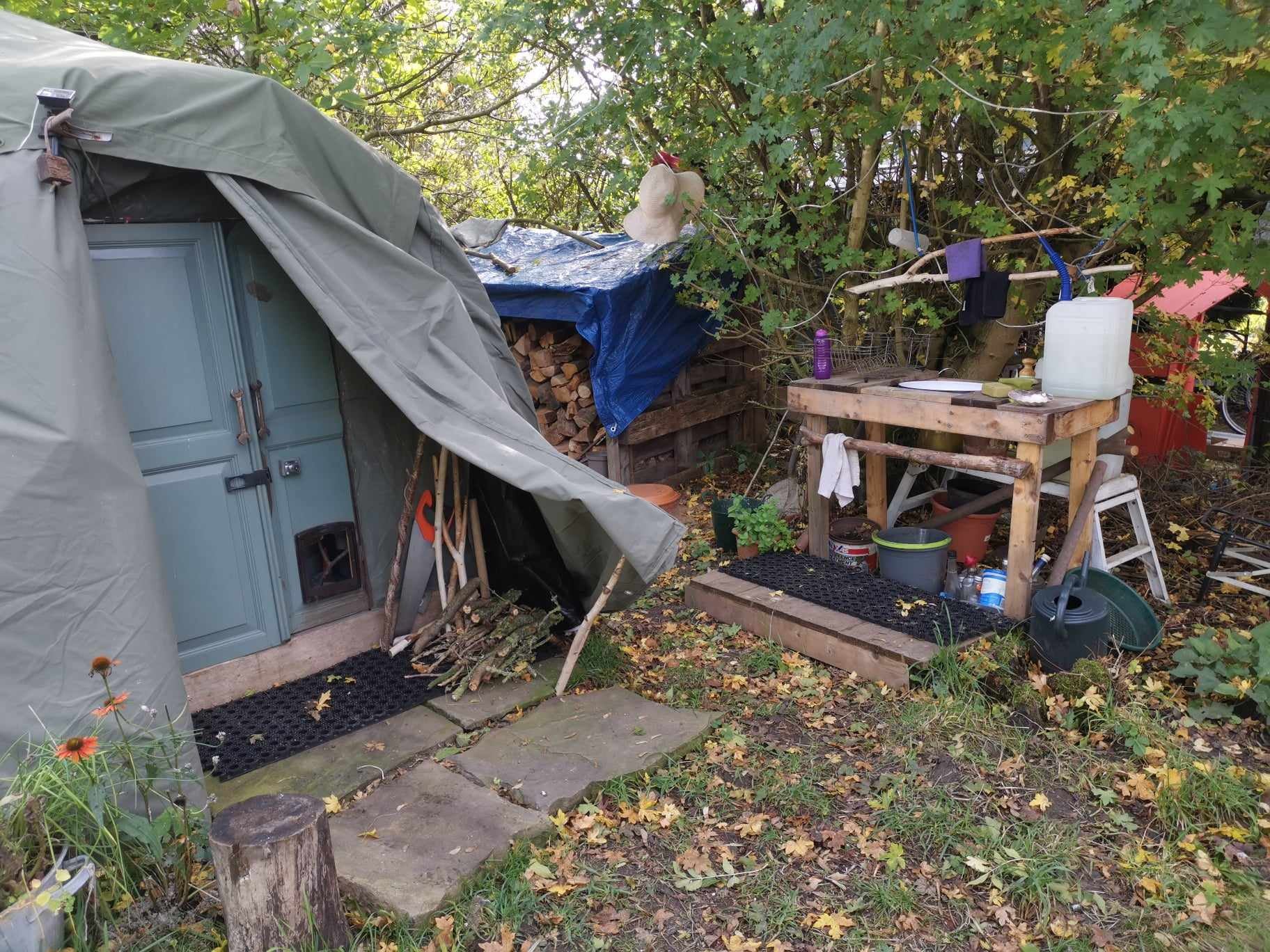
Jessica, who avoids eating cheese or meat and believes most foods do not need refrigeration, grows and forages her own fruit and vegetables – storing them in a flower pot in the ground to keep them cool.
She cooks using a gas oven, with gas supplied by a local supplier, or she cooks with wood on a fire.
As a result, her monthly bills are minimal, with around £300 covering her WiFi, phone bill, groceries, and workshop rental costs.
However, living in a tent full-time means she often encounters unexpected visitors – it is usually home to spiders, shrews, slugs and toads.
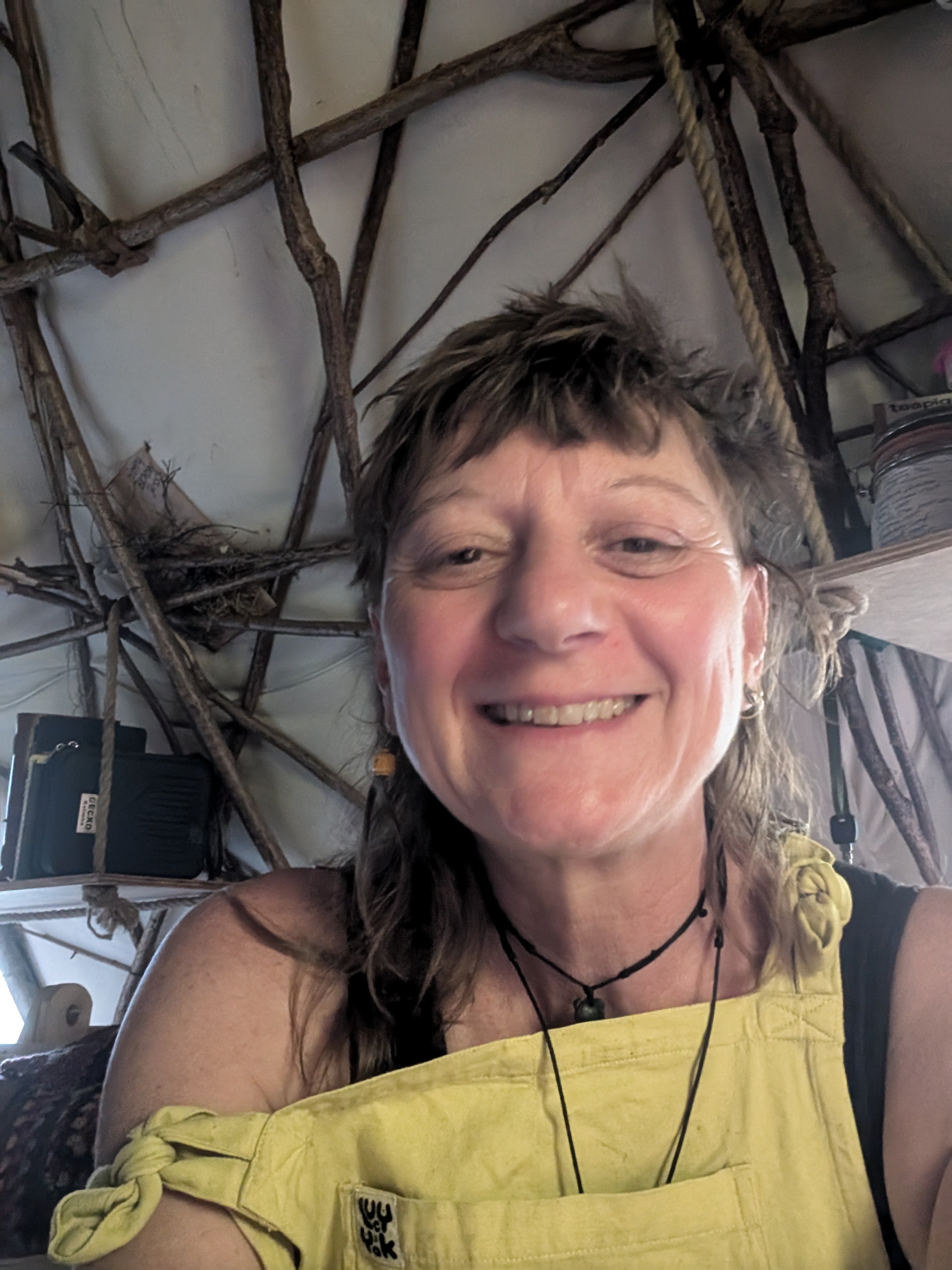
She said: “I do sweep the cobwebs away, but there are lots of nice places for spiders to live – even if I sweep the cobwebs away, they just build more.
“Some of the spiders are probably three or four years old.
“I think it’s part of it – once you accept that you’re just part of the ecosystem, it’s much better than trying to fight against it.
“I’m not worried about the spiders when I sleep, but I don’t like little things that run and scuttle, so I have a cat.
“I have to seal up all my food, put it in containers, keep everything really clean, and not leave crumbs anywhere.”
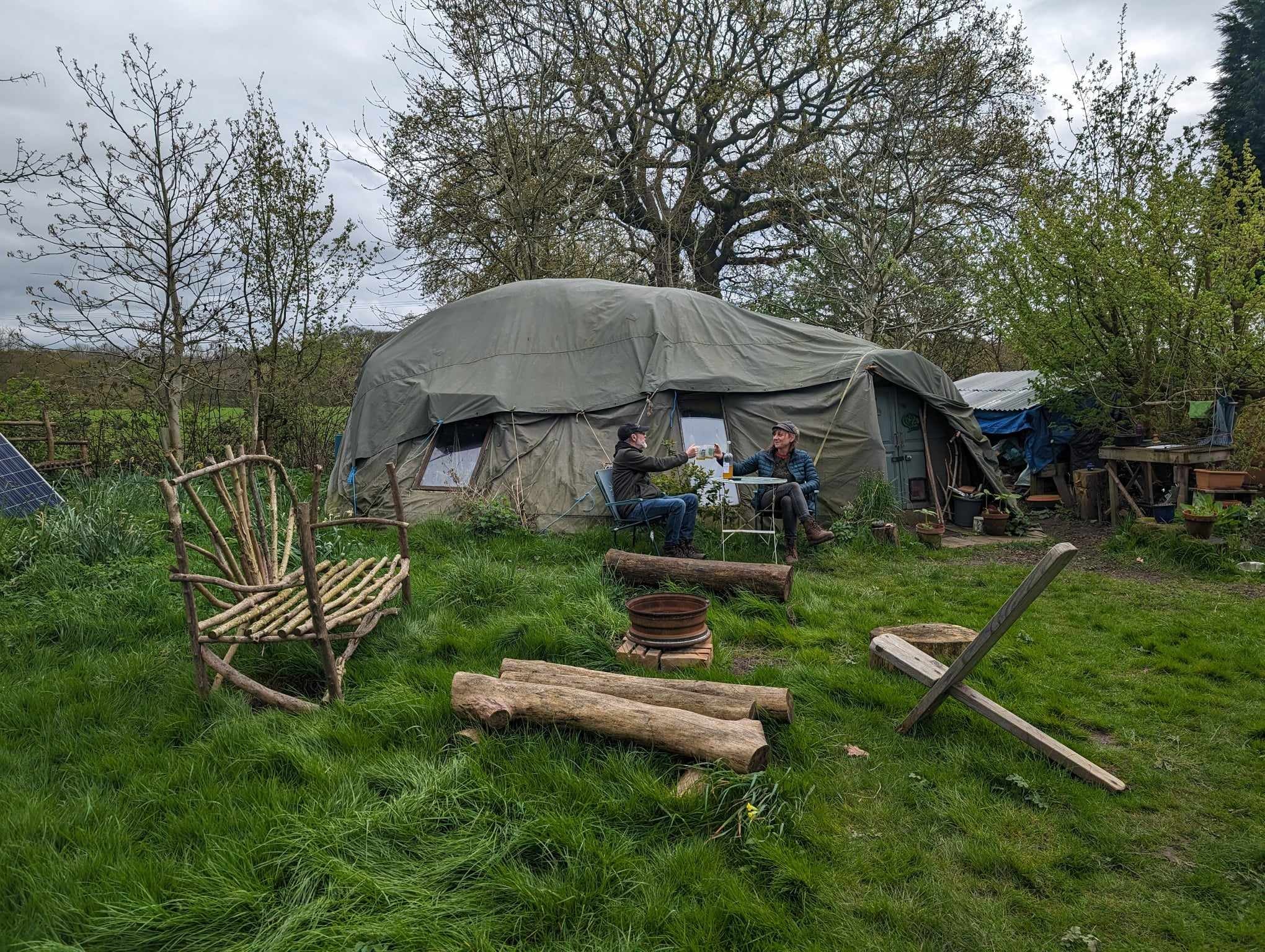
Jessica plans to continue living in her bender tent until the end of autumn – in the winter, she will temporarily move to Lancaster to live in a house with her partner.
“It’s not going to be for long; I don’t think I’m going to last very long in a house,” Jessica added.
“I don’t think I’ll ever go back to living in a house permanently.
“He’s stayed with me quite a lot, and he was a tree protester, so he lived in tree houses and vans.
“We’re hoping to live in a treehouse or a bender tent together.”
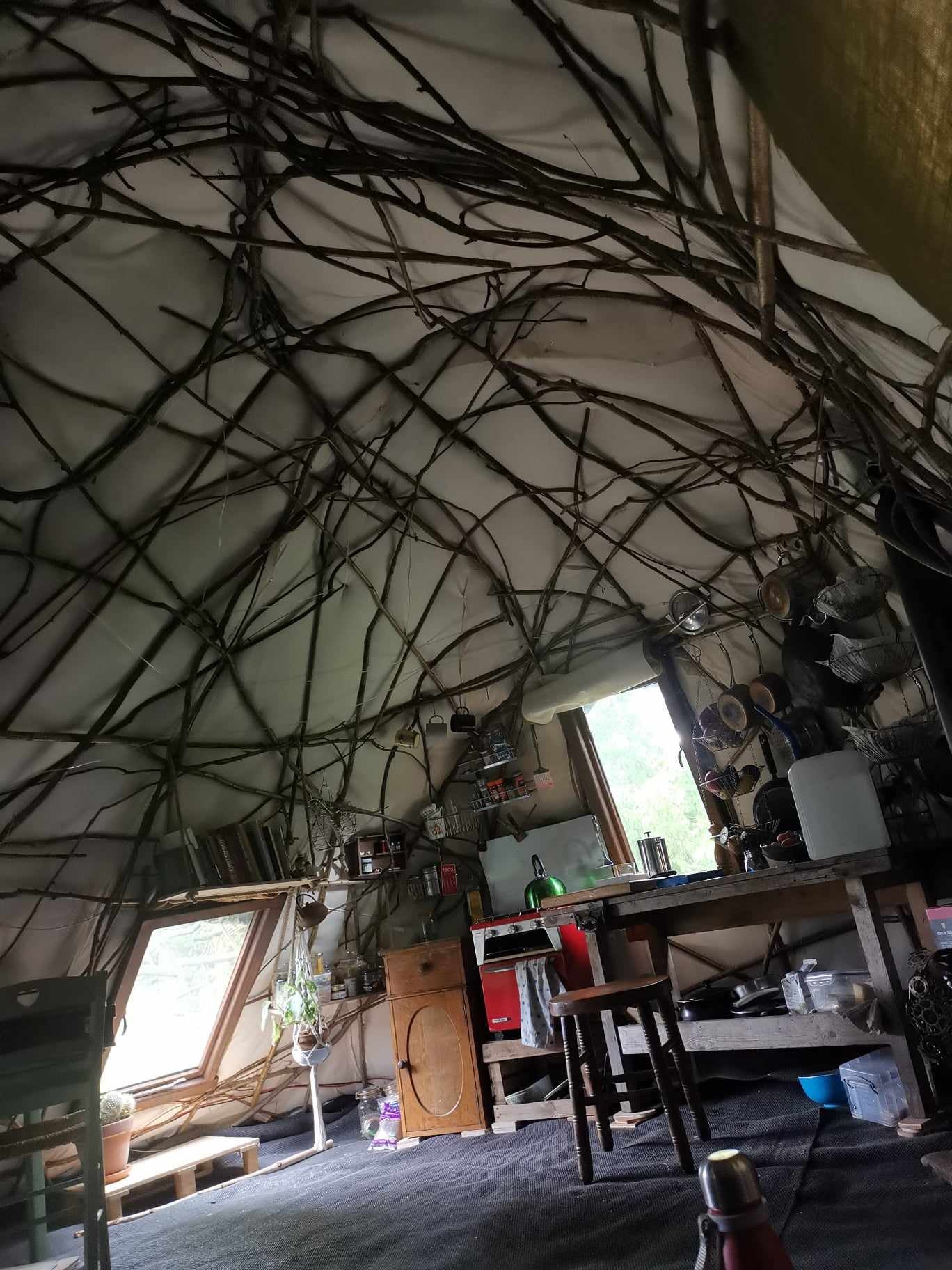
When she moves out, she will not dismantle her tent – instead, she is allowing others to stay in it to prevent it from deteriorating.
Looking to the future, she hopes to help more people create bender tents and continue hosting workshops on how to construct them.
She added: “Off-grid living would be a solution to a lot of problems, including the cost of living crisis, except that it is not really legal or easy to get away with.
“Nomadic living is not encouraged and there is a lot of prejudice.
“It definitely makes you realise you don’t need as much stuff.”







